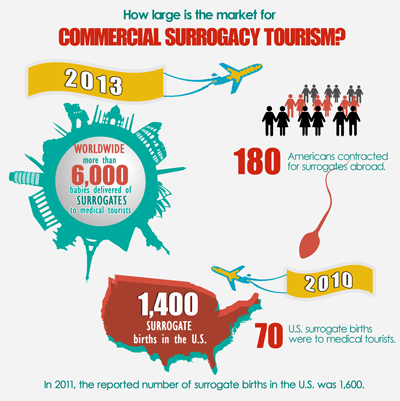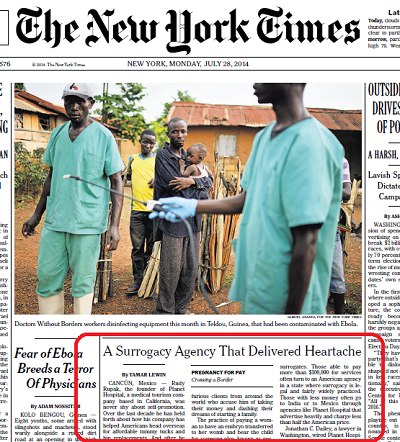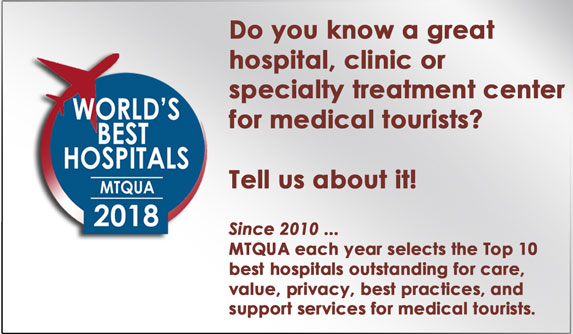 (Commercial Surrogacy Tourism, part 2)
(Commercial Surrogacy Tourism, part 2)
If there is no law against commercial surrogacy, can you break the law?
In Thailand, some ten years ago, a law had been proposed to parliament to ban commercial surrogacy, but it was not enacted.
When, in 2011, Thai doctors were involved in a case of Vietnamese women being used as surrogates in Thailand on behalf of a Taiwan agency, the law was brought up again but still not passed.
The Medical Council of Thailand has certain strictures against commercial surrogacy but these are ethical and moral considerations, not legal ones. Doctors deemed to have violated MCT rules can be held accountable to the point of having their licenses taken away – an extremely harsh consequence that is reluctantly and seldom dispensed. The Thai doctors involved in the Vietnam case are still under investigation by the MCT.
[su_row]
[su_column size=”1/2″] No one has broken the law, because there has been, and still is, no law. Yet.This month a new law regarding the practice of surrogacy has been presented to the military junta for consideration. Reports indicate this law will be passed, and will likely come into effect within six months. The new law tackles both the rights of parents, babies and surrogates as well as stomping out “agents.” [/su_column]
[su_column size=”1/2″] [su_note note_color=”#f8f8f4″]1. With Thailand Shut Down, Is Commercial Surrogacy Tourism Dead?2. Is Commercial Surrogacy Tourism So Bad?3. Commercial Surrogacy Is Here To Stay – Laws Are Changing4. How Much Does Commercial Surrogacy Cost?5. [INFOGRAPHIC] Commercial Surrogacy Tourism[/su_note]
[/su_column]
[/su_row]
This month a new law regarding the practice of surrogacy has been presented to the military junta for consideration. Reports indicate this law will be passed, and will likely come into effect within six months. The new law tackles both the rights of parents, babies and surrogates as well as stomping out “agents.”
Meanwhile, surrogacy tourism has all but shut down in Thailand. Existing contracts with confirmed pregnant surrogates are expected to be fulfilled, with all concerned expressing the desire to ensure both the babies’ and the parents’ legal rights. Some doctors quietly add they fully expect the business of surrogacy to start up again once the current situation calms down.
“Profiteering” is the main objection in surrogacy tourism.
The main objection to the practice of surrogacy seems to be the commercial nature of it. The moral argument of whether surrogacy itself can be justified is not a very loud one in Bangkok. Most of the debate centers on the financial nature of the practice of surrogacy. [Tweet “Profiteering is the main objection in surrogacy tourism”]
Some argue that “agents” need to be denied the opportunity to make money off a practice that responds to sensitive personal needs.
The current bill before the governing council explicitly bans both advertising and the use of third parties and other agents. In practice, surrogacy services may be restricted to public hospitals instead of private clinics or private hospitals.
The new law, if passed, specifically denies surrogacy services to same sex couples and to single individuals. Grey areas in the bill may be resolved prior to its passing into law or may be left to interpretation in practice. For instance, commercial surrogacy may be allowed for “non-medical” reasons.
Issues of morality, commerce and bad business
 Surrogacy tourism is today’s medical tourism scandale.
Surrogacy tourism is today’s medical tourism scandale.
Planet Hospital has been a medical tourism facilitator for the past decade, providing surrogacy tourism services in India, Thailand, Mexico and, according to the owner, Rudy Rupak, possibly Brazil, Argentina and Uruguay.
Now, the Federal Bureau of Investigation is questioning the company’s owner Rudy Rupak and former clients are preparing a class action lawsuit against the company for misusing funds paid it to arrange surrogacy in Mexico and other countries.
The company has been around long enough that many people in the industry have a favorite Planet Hospital or Rudy Rupak story or anecdote. While the Wall Street Journal featured Planet Hospital in an article on global babies in 2010, the New York Times earlier this year deemed the problems of Planet Hospital’s surrogacy services important enough to place on its front page. The company’s troubles have been exposed recently in documentaries (The Last Resort) on major American and Australian television networks.
Commercial surrogacy tourism in Mexico
According to media reports, Planet Hospital has been offering surrogacy services for couples who will travel to Cancun Mexico. However, commercial surrogacy is illegal in Mexico except for the state of Tabasco. Tabasco’s main city, Villahermosa is 450 miles from Cancun, which is in the state of Quintana Roo, at the furthest tip of the Yucatan Peninsula.
Planet Hospital brought couples to Cancun for the fertility treatments and implantation. The surrogate mothers stayed in housing provided and supervised by Planet Hospital in Cancun. As the delivery date approached, the surrogate mother was put on a flight to Tabasco to give birth in that state where birth certificates can legally state the names of the contracting parents and not the birth mother.
Mismanagement of funds
Although contracting parents may feel that skirting laws in this way may at some point place them in legal jeopardy and their babies’ citizenship or birth status in question, this is not what is causing Planet Hospital’s troubles.
Geoff Moss, a former associate in Planet Hospital has said that Planet Hospital did not escrow the money from parents that was intended to pay the clinics and the surrogates. Comingling money meant for payouts over several months with operating funds creates opportunities for abuse of trust and financial mismanagement.
Continue to Part 3. Commercial Surrogacy Is Here To Stay – Laws Are Changing
This 4-part series
The infographic is here.

 >
>